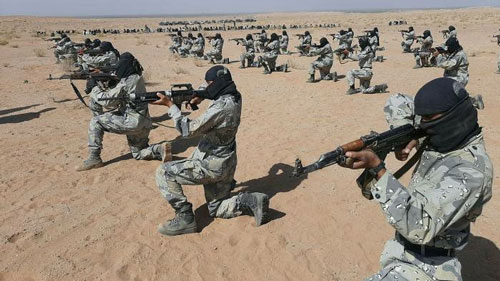Two months after the Taliban seized power, violence, death and fear still stalk Afghanistan. US troops might have departed but the new Islamist rulers in Kabul are now threatened by an insurgency launched by Islamic State-Khorasan Province, an Isis-inspired jihadi movement that has deep ideological differences with the Taliban.
Since the Taliban takeover in August, Isis-K has mounted a series of suicide bomb attacks, including at the Kabul airport and at two Shia mosques, as well as assaults on Taliban convoys, which have killed hundreds. Analysts have warned of further violence as Isis-K tries to prevent the Taliban from consolidating their grip on Afghanistan.
Isis-K’s more hardline stance has proved attractive to disgruntled Taliban fighters. Dismayed at the new regime’s reluctance to impose tougher restrictions on women and its diplomatic overtures to countries such as the US, China and Russia, former Taliban members have switched allegiance to Isis-K.
“The American war is over, but the Afghan wars are not,” said Avinash Paliwal, deputy director of the Soas South Asia Institute, and author of My Enemy’s Enemy, a book about Afghanistan. The Taliban’s longtime goal has been to establish an Islamic government in Afghanistan.
But Isis-K, which has been active in Afghanistan since 2015, wants to establish an Islamic caliphate across Afghanistan, Pakistan and parts of India and Iran.
Isis-K militants consider the Taliban, who have held talks with regional powers and the US in a quest for diplomatic recognition, as “filthy nationalists” who have betrayed the greater Islamic cause, according to an analyst. “Isis-K sees the Taliban as just another kind of political outfit — cutting a deal with the Americans — that is ideologically not pure,” Paliwal said.
“Their aim is to destabilise an already struggling regime.” Mourners at the funeral of a victim killed in a bomb attack at a mosque © EPA-EFE via Shutterstock Isis-K claimed responsibility for the August 26 Kabul airport bombing that killed about 180 people.
Daesh, as Isis-K is locally known, is also suspected of bombing Kabul’s Eid Gah Mosque this month, where Taliban leaders were attending funeral prayers for the mother of the movement’s spokesman. Five people were killed.
The Taliban have launched counter operations but Isis-K continues to sow terror. Its bombers have attacked two mosques attended by Afghanistan’s traditionally persecuted Shia minority during Friday prayers, killing more than 100 people and injuring scores more.
Paliwal said the assaults would “exacerbate a sectarian faultline, which is not in the Taliban’s interest to really inflame”. Security analysts also blamed Isis-K for attacks on Taliban convoys in recent weeks.
Nasratullah Haqpal, a Kabul-based political analyst, said the violence was eroding public confidence in the Taliban, which had pledged to deliver peace once they took power. “These attacks are bringing down the credibility of the Taliban government,” Haqpal said. “They have been claiming for years that ‘we are the only group that can secure and bring stability to Afghanistan’.
But Daesh and their supporters are challenging this claim.” The Taliban have pledged to “exterminate” the perpetrators of the assaults, but local commanders admit that they will struggle. “Stopping Daesh attacks is difficult even for well-trained forces and governments in the top countries in the world,” said one commander.
“They [Daesh] are always after a soft target and defenceless people, where they can make news.” Recommended FT SeriesReturn of the Taliban Taliban confront reality: ‘30m people to look after and no money to do it with’ Despite the enmity, the lines between the movements have often blurred.
Isis-K’s ranks have long included Taliban defectors as well as erstwhile members of the Taliban-affiliated Haqqani network, which was described by a US-based expert as a “criminal enterprise masquerading as a jihadist group”. Sirajuddin Haqqani, a senior Haqqani leader, is Afghanistan’s new interior minister.
Many Afghans, and some foreign analysts, believe Isis-K is being supported by foreign forces, such as Pakistan’s Inter-Services Intelligence. The ISI wants leverage to persuade the Taliban to co-operate in suppressing Tehreek-e-Taliban Pakistan, a jihadist insurgency that has targeted the Pakistan government. Others suspect US intelligence agencies, anti-Taliban warlords and even former members of the Afghan army of collaborating with Isis-K.
“We know there are intelligence agencies and networks supporting Isis-K to challenge and create problems for the Taliban government,” Haqpal said.
In India, government and intelligence officials have suggested that inter-Taliban rivalry — between the Haqqani network and a powerful Kandahar faction led by Mullah Baradar, the deputy prime minister — is stoking the violence.
“There is clear factionalism in the Taliban,” an Indian intelligence source said. “It is possible that one faction is supporting the Isis-K to wipe out the dominance of the anti-Haqqani faction.”
The motivations behind the attacks may be murky, but the threat of further bloodshed is overwhelming. “The violence is going to increase,” said Paliwal. “It’s going to be a free-for-all.”—Agencies










